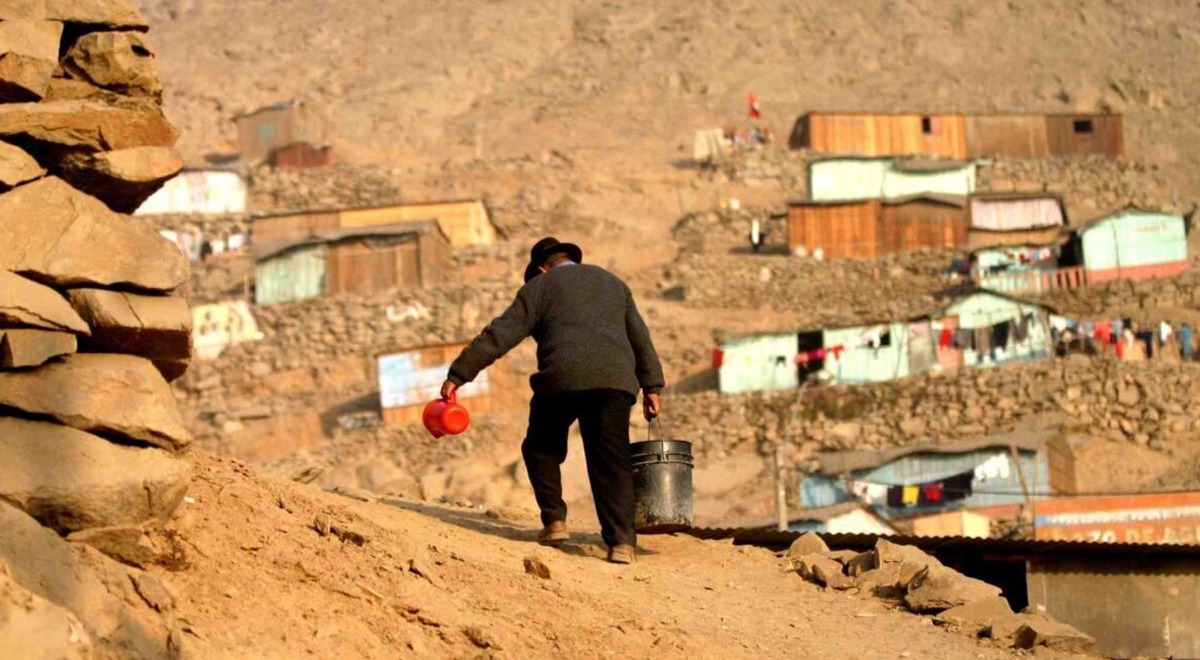
Economic growth has stagnated in Peru due to a weak state capacity to implement effective policies to overcome inequality, according to a panel of experts who participated in the presentation of the Governance and Public Innovation Program of the Pontificia Universidad Católica del Perú (PUCP).
Between 2003 and 2013, the Peruvian economy showed robust growth, with Gross Domestic Product (GDP) rates exceeding 6% per year. However, since 2019, economic expansion has been just 3% annually.
This weak growth has ceased to be a temporary situation and has become the new economic reality, a result of the weakness in public policies and the governance crisis that affects the country, specialists warned.
“With inadequate growth rates, the economy is stagnant or in decline, which could worsen the situation over time considering that in recent years poverty and inequality have increased in the country,” indicated the former Minister of Economy, Alonso Segura.
For Martin Tanaka, director of the PUCP School of Government, public policies, including social policy, tax policy and spending in general, play a crucial role in the redistribution of wealth.
“Currently, these policies are not working effectively to reduce economic disparity in Peru,” he stated.
During the first decade of the 21st century, the Peruvian economy grew at high rates, benefiting from the high prices of minerals, but from 2021 to date, mineral prices are reaching historic highs.
It is worth remembering that, a few days ago, the future price of copper, the main metal that makes up the Peruvian export basket, was quoted at US$5.04, its highest historical level in the last two decades.
According to Flavio Ausejo, director of continuing education at the PUCP, one of the reasons behind this ineffectiveness is the lower capacity of the State to implement effective public policies, due to limited resources and a less developed public administration.
Better public policies that promote supply
According to Segura, to address these problems, public policies are needed that promote supply and improve the productive conditions of the economy.
“These measures, although unpopular with politicians due to their slow maturation, are essential for long-term development. For example, a well-implemented educational reform may take decades to show results, but it is essential to improve the quality of human capital,” he added.
For his part, Martín Tanaka emphasized the importance of implementing better public policies that promote productivity and reduce inequality.
“This includes investing in education, supporting innovation and improving infrastructure. Only in this way can inclusive and sustainable growth be generated for Peru,” she said.
“Political training is not limited to party politics. It is about doing politics on a daily basis, in the decisions we make from our various positions: as public servants, in the private world, or in civil society organizations,” Ausejo concluded.
Finally, Juan Londoño, senior executive of the CAF, highlighted the articulated work that his entity has been carrying out with the PUCP School of Government to train professionals in public management with critical thinking and who contribute to the development of Peru.
The data
- The meeting took place within the framework of the inauguration of the PUCP Governance and Public Innovation Program, in agreement with CAF – Development Bank of Latin America and the Caribbean.
- The objective of this academic program is to strengthen the skills and abilities of people who work in the public, private and civil society sectors in Latin America.
Source: Larepublica
Alia is a professional author and journalist, working at 247 news agency. She writes on various topics from economy news to general interest pieces, providing readers with relevant and informative content. With years of experience, she brings a unique perspective and in-depth analysis to her work.












